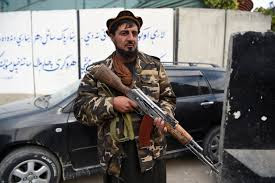Two years have passed since the American withdrawal from Afghanistan, and while international attention is focused on other battlefronts, such as Ukraine or more recently Niger, Afghanistan remains one of the crucial points of international geopolitics, so Afghani dynamics should be followed carefully.
One of the major elements for consideration in Afghanistan is the strong growth of the terrorist group Daesh-Khorasan, its ambition to undermine the authority of the Taliban and to expand towards other neighbouring countries, such as Pakistan and Tajikistan. In this context, the country has suffered numerous terrorist attacks which confirm the development of the terrorists’ tactical capabilities and the simultaneous transformation of its strategy in identifying allies in other territories, particularly in Pakistan and Central Asia.
Two years after the American withdrawal, the fight against terrorism continues to be a challenge and Afghanistan has been the ideal terrain for the reorganisation of these groups who have been able to re-emerge with strength, with a more sophisticated model.
We cannot exclude the fact that the withdrawal of Western troops has opened China’s eyes to this country which has piqued Chinese interest in various domains, especially economically. Beijing aims to stabilise the area in order to prevent war and instability, and other scenarios that could have a negative impact not only in the geographical area of reference but also on China itself.
So, while international attention may no longer focused on Afghanistan this does not mean that the dynamics of the country can be underestimated. In particular, the US exit has paved the way for an antagonist of the US in China to intervene and now finds itself involved in a stabilisation process that has the contours of an impossible mission even for a colossus like China. Beijing has found itself forced to implement a risk prevention strategy that is escalating in the region.
If we look at international diplomacy, we can see that attempts to rehabilitate the Taliban regime have not stopped in recent years. At this juncture we see countries such as Qatar, which has worked to this end and has hosted a representative office of the Taliban regime in Doha for years. From an analytical and observational point of view, the policies of the Taliban themselves in these two years have not substantially supported the attempts of international diplomacy.
So, while the world is engaged in various open war scenarios such as the Ukraine and Niger, with the possibility of similar scenarios unfolding in other regions of Africa, Afghanistan remains an important strategic location that must not be overlooked by international observers, above all with a view to controlling the dynamics of development within the chaotic terrorist world.
In this context, the military withdrawal of the US army and the seizure of power by the Taliban represent a model for terrorist movements. Afghanistan is the clear example that if you persevere, then in the end you can return to power. This discourse applies not only to Daesh, but other terrorist groups such as Al Qaida and is an example for other tribal conflicts that still affect many sensitive regions of the world.
Afghanistan has become a perfect laboratory in which the struggle between the various components of the terrorist world is tested, but it has also made a big leap forward, entering into the bigger scene of global rivalry between the US and China.
Dr. Amer Al Sabaileh

